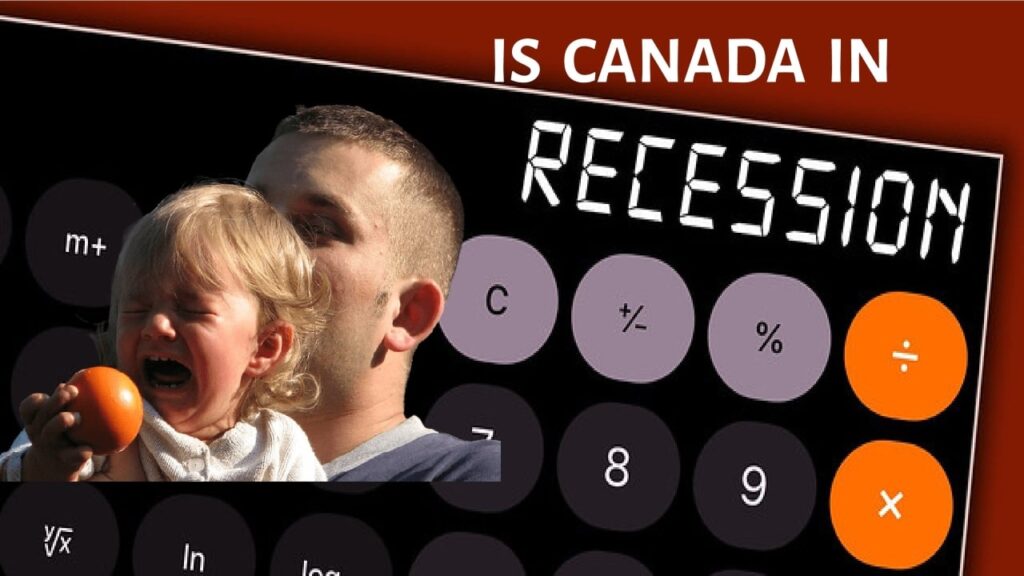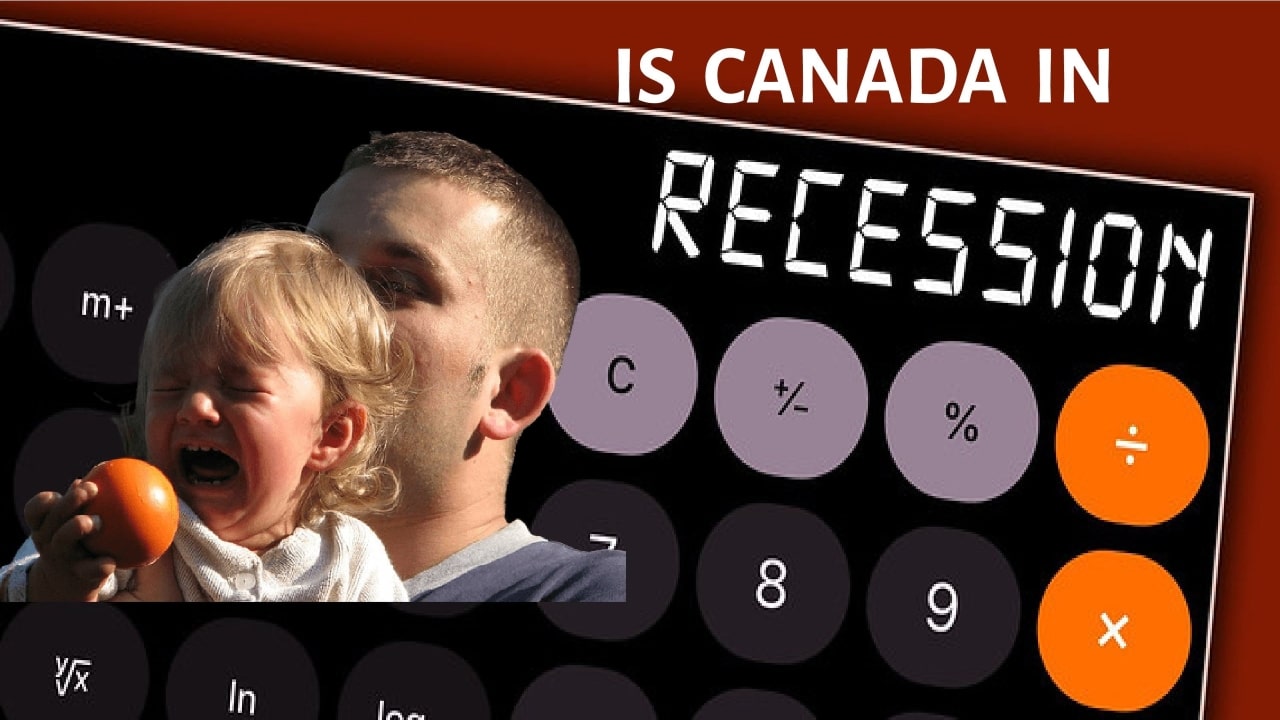canada recession
Canada recession: Can you operate a business if there is a recession in Canada?
During slow economic growth and economic downturns in the Canadian economy, companies cut costs and especially labour costs. I wrote about Canadians’ fears of the Canada recession two weeks ago. Job losses go hand in hand with tough times. For many people, gaining new meaningful employment is very tough and sometimes impossible. For those people with dim economic prospects in the Canadian labour market, starting a small business in tough economic times is really their only option.
Despite the challenges a weak economy and the current recession fears may pose, starting a small business can be a rewarding experience with the proper amount of planning. In this Brandon’s Blog, I provide my 8 best tips for either changing parts of your business or starting a small business during tough economic times and maybe even a Canada recession.
How must business owners respond to a Canada recession?
Right now, no economist is prepared to forecast the Canada recession risk. Will it be a mild recession, a severe recession or will we even have one at all? The current and forecasted monetary policy of the Bank of Canada with its overnight rate hikes to its benchmark rate has financial markets, Canadian businesses and Canadian households all on edge. It is not just Canada as the heads of the central banks of all advanced economies reacted to the pandemic the same way and are now all acting in concert with rate hikes in an attempt to curb the now persistent inflation.
We are in somewhat of new territory as this period of time is very different than previous recessions and financial crises. We are experiencing economic shocks due to the COVID-19 pandemic and the shutdown and restarting of the Canadian economy. There is not a lot of either business confidence or consumer confidence in the marketplace right now. The consumer price index is increasing due to rising inflationary pressures and the inflation rate in Canada.
Small business owners need to have a well-crafted business plan, especially during an economic downturn. This is because it can be more difficult to get financing from lenders when money is tight. Therefore, starting a small business during a recession can be challenging. If you want to have success in your business, new or established, you need to put some serious effort into cash forecasting and knowing your bottom line. This means understanding how much money you need to bring in, what your operating costs are, and ideally how to make a profit.

How to financially prepare my business for a Canada recession
Here are some methods that can help ensure your business does well during challenging financial times. Whether you’re just starting or need to make some adjustments to your existing company, these pointers can help you survive as well as also grow.
You can even find success at some level during turbulent economic activity. The reasons are as follows:
- You may find that there is less competition during this time. This is because most people tend to start businesses when the economy is doing well.
- You may find certain things are cheaper, the overhead costs of things that you need for your business to run. Think about working from home or renting a location that has been vacant for a while. Think of used furniture and materials, which you can buy at a discount or maybe even from a bankruptcy sale.
- If you service your customers you gain during this time well, your good relationship will be a good reason why they will be more likely to stay in touch with you when the economy improves. This is especially important if you can offer them a more affordable option than the competition.
- More mature businesses tend to stifle or prevent innovation during downturns. You can use this time to come up with new ideas that might be missed and give you a better position when you open doors, real or virtual.
The success of your company is based on how well you study the actual domestic demand for your product or service in the marketplace. It is just as important to comprehend what target price you need to reach in order to make sales. Furthermore, you need to understand what sales level you need to hit to both break even and also to be profitable.
Canada recession financing
It’s always an excellent idea to have someone you trust assess your business plan and cash flow forecast before trying to obtain financing. This will help you catch any essential issues you might have missed or inaccurate assumptions you have actually made as it relates to your business and its capital requirements. Some resources you might wish to turn to for help before looking to financial institutions for a loan include:
- friends who have their own business;
- someone at the bank where you do business with who you have a good relationship; or
- your accountant
The Canadian economy could be pushed into a recession by the federal government’s reaction to the COVID-19 pandemic. If you’re considering starting a new business during these challenging times, you need to be very cautious. Your ability to develop a financial backup plan for your business and personal finances if you don’t meet your initial revenue target is more important than your ability to borrow money. It is normal for any new business that you will not be able to draw a salary during the 1st year of your new business.
You should also have a personal cash reserve so you have enough to live on for ideally the first 12 months of a new business. Make sure you budget carefully so you can keep making your most critical payments: rent/mortgage, insurance, utilities, and food. Finally, check your gut and your bank balance to make sure you’re ready to embark on your new adventure.

Canada recession: Sell shrewdly
Starting a new business at a time of sharp economic downturn and turbulent economic activity requires creativity and resourcefulness. Marketing is critical to staying ahead of the competition. Make sure your business plan really fleshes out the marketing process: What exactly are you trying to sell? Who is your target customer? How will you price your product or service? What is your business promotion plan?
Dividing your original customer base into smaller pieces or niches is another strategy to allow any business to market more strategically. For example, if you are offering professional services for women, are you able to narrow it down to women in a specific age group, occupation type, or geographic location? Or, can you tier your product offering so that there is a relatively low-cost entry point product to allow new customers to try out your business and to allow you to then move them up to higher-priced and more profitable product offerings?
Can you think of ways to expand your customer base? For example, if you have a business shipping recipes and ingredients on a subscription basis for people to cook their own dinners without having to go do the shopping, could you also offer packaged dinners to customers who just want the convenience of heating and eating?
Canada recession: Ongoing competitive analysis
Be informed of your competitors’ movements in terms of marketing and product design. Are they enhancing the product? Devaluing the price? Utilizing original promotional methods? Knowing your competitors’ standings will help you formulate a unique selling proposition and grow your market.
Think about which segments your competitors are not serving, or which leads they are missing, and then fill that gap.

Canada recession: Start small…with a plan to expand
As you start your business, be mindful of both your expectations and expenses. Try to be conservative in your estimates and plans, then adjust as your business grows. Review your business plan periodically and reconsider what is truly necessary to get started. For example, could you open in a smaller or cheaper location? Or, could you avoid the need for physical space by staying virtual?
When you have found the most cost-effective space for your business, think about your staffing needs. Before hiring permanent staff, you could use independent contractors as temporary or part-time workers.
If you are aware of a similar business that is failing, you may be able to find some great people who are willing to be paid less than in a more active market. Offer fewer employee benefits initially and then increase them as your profits grow. You don’t want to offer all sorts of great benefits at first and then find out you can’t afford them later. Taking away benefits is much worse than not having given them in the first place.
Immediate business growth in a challenging economy is unrealistic. An aggressive approach in a Canada recession or a down economy is unwise. You should be looking for sustained business growth over time.
Canada recession: Leverage technology to your advantage
The right tools are essential for business success. Utilizing modern technology can help you to stay organized, connected with customers and effectively market your company. CRM systems help you track your customers’ interests, so you can focus on products and services that best meet their needs.
The latest technology gives entrepreneurs more options for selling online and through multiple channels. You can save on advertising costs by doing email marketing, blogs, podcasts and of course optimizing your website for SEO instead of opting for more expensive electronic or print ads. And when you need inspiration, you can turn to social media and online publications and groups focused on helping entrepreneurs.

Canada recession: Your network
Building a strong network is essential for anyone looking to advance their career or grow their business. Getting involved in local business groups and networking events is a great way to meet other like-minded individuals and make valuable connections. Joining professional associations or local clubs and organizations related to your industry is also a great way to expand your network and get your name out there.
Canada recession cost reduction ideas
With inflation pressures causing rising prices, cost reduction needs to be a key element of running your business. A gloomy economy can actually mask some great ways to save money. Creative ideas to reduce your start-up costs include:
- Be very careful when making capital investments due to their mid and long-term nature. Leverage the economic situation and negotiate everything. You may be able to get a sharp drop in prices if you can demonstrate that you can afford to pay the lower price in full and on time.
- Buying supplies from businesses that are about to go out of business or need to reduce inventory, especially bulky items like electronics and office furniture.
- Barter with other business owners to find business alliance possibilities and suggest trading in products or services to offset costs.
- Initially, do your own legal, financial and business homework through free online resources.
- Compare business credit cards for the best deals.
- Find a bank account that meets your small business needs including access to brick-and-mortar and online services as well as attractive rates and incentives.

canada recession
Canada recession key takeaways
Before seeking financing, consult with another business owner or friend to review your business plan. Develop a marketing strategy tailored to your business goals. Start small and expand when you see improvements. Secure your network and find ways to keep costs down by utilizing available technology.
You should begin with small steps and then increase your efforts when you start seeing improvements. Make sure your network is secure and look for ways to reduce costs. Make use of appropriate existing technology.
Although it may be challenging, there are benefits to starting or running a business during an economic downturn. By being thoughtful and strategic about cost-cutting measures while still providing value to customers, you can set your business up for success.
Canada recession conclusion
I hope you found this Canada recession Brandon’s Blog interesting. Among the many problems that can arise from having too much debt, you may also find yourself in a situation where bankruptcy seems like a realistic option.
If you are dealing with substantial debt challenges and are concerned that bankruptcy may be your only option, call me. I can provide you with debt help.
You are not to blame for your current situation. You have only been taught the old ways of dealing with financial issues, which are no longer effective.
We’re passionate about permanently solving your financial problems with you and getting you or your company out of debt. We offer innovative services and alternatives, and we’ll work with you to develop a personalized preparation for becoming debt-free which does not include bankruptcy. We are committed to helping everyone obtain the relief they need and are worthy of.
You are under a lot of pressure. We understand how uncomfortable you are. We will assess your entire situation and develop a new, custom approach that is tailored to you and your specific financial and emotional problems. We will take the burden off of your shoulders and clear away the dark cloud hanging over you. We will design a debt settlement strategy for you. We know that we can help you now.
We realize that people and businesses in financial difficulty need a workable solution. The Ira Smith Team knows that not everyone has to file for bankruptcy in Canada. Most of our clients never do, as we are familiar with alternatives to bankruptcy. We assist many people in finding the relief they need.
Call or email us. We can tailor a new debt restructuring procedure specifically for you, based on your unique economic situation and needs. If any of this sounds familiar to you and you’re serious about finding a solution, let us know.
Call us now for a no-cost consultation.



